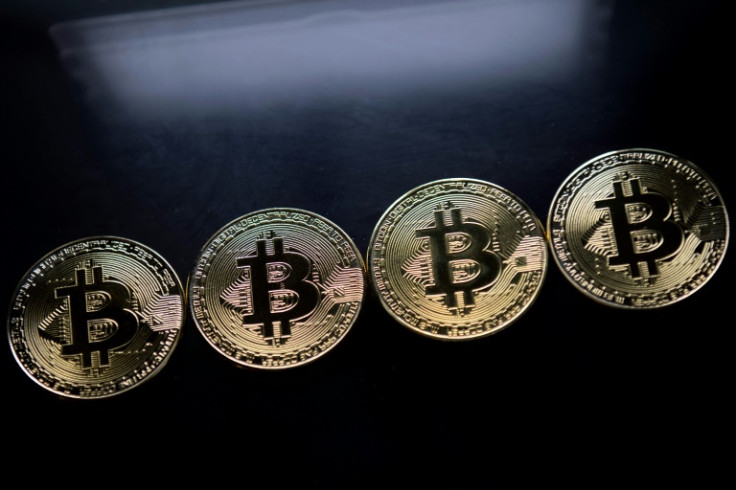Bitcoin And Small Cap Stocks Drop On Rising Bond Yields — What Comes Next

Bitcoin and small caps led losses on Wall Street last week as rising bond yields turned traders and investors away from risky assets.
The digital currency traded close to the $67,000 mark Friday afternoon after approaching the $74,000 mark during the week. It was down 4.5% on profit-taking and higher bond yields for the week. The benchmark 10-year bond ended the week at 4.30%, up from 4.11% a week earlier and 3.9% a couple of weeks ago.
Higher bond yields drove small caps lower, too, while pausing the rally in large caps.
The S&P 500 ended the week at 5,117.08, unchanged; the Dow Jones at 38,714.77, down 0.05%; the tech-heavy Nasdaq at 15,973.92, down 0.07%; and the small caps Russell 2000 at 2,039.32, down 1.4%.
Bond yields spiked higher following two inflation reports, which showed that the old villain of the U.S. economy is still around. They suggested that the Fed will keep interest rates high for much longer than Wall Street has hoped.
The Consumer Price Index (CPI), a measure of retail inflation, rose 0.4% in February, the highest level in five months and above market expectations of 0.3%.
"The year-over-year CPI number is still well above the Fed's target of 2%, suggesting we'll see no rate cuts until much later in 2024, and 'higher for longer' will remain the story for interest rates," David Keller, Chief Market Strategist at Stockcharts.com, stated.
The February Producer Price Index (PPI), a measure of wholesale inflation, rose by 0.6%, the most significant increase since last August and twice the market's expectations.
Initially, stocks tried to shake off the elevated CPI numbers, but the turnaround was short-lived.
The PPI numbers confirmed that inflation remains a sticky problem along the supply chain.
"The PPI tells me that we're approaching a crucial crossroad," said Ken Tjonasam, Portfolio Strategist at Global X. "Despite our best efforts to slow down the economy a bit and get inflation under control, it's proving to be a stubborn beast. This situation isn't just a blip on the radar; we're seeing a trend that veers from where we hoped to be heading, especially given the Fed's clear intention to improve inflation trends," Tjonasam added.
Stocks have not gotten any help from a government report on retail sales released during the week, either. It showed that sales by the nation's retailers rose at a monthly rate of 0.6%, below market forecasts of a 0.8% gain.
The slowdown in retail sales came despite warmer weather, which should help sales.
"This retail sales data suggests we're continuing to walk a tightrope," Tjonasam said, adding, "On the one hand, the rebound from negative to positive territory (partly buoyed by improved weather conditions) across most categories suggests resilience in consumer spending, even though we missed expectations. Yet, the stark reality of the control group's stagnation at 0.0% cannot be overlooked."
Weaker sales signal a slowdown in the top line of publicly traded companies in the sector, while elevated inflation complicates the job of the Fed. It must keep interest rates high to fight inflation while risking pushing the economy into stagnation or even an outright recession.
Looking ahead, Keller continues to see signs of a leadership rotation into value-oriented sectors, including industrials and financials. "Investors who have been riding the mega-cap growth trade in early 2024 may benefit from diversifying into other asset classes with a relatively low correlation to stocks, such as gold and Bitcoin," he added.
Dr. Tenpao Lee, professor emeritus of economics at Niagara University, believes the U.S. markets are still the best place for international investors worrying about geopolitical tensions. "The bonds and Bitcoins are slightly lower due to the short-term pressure from the capital markets in fighting with the stocks for capital," he stated.
© Copyright IBTimes 2024. All rights reserved.





















